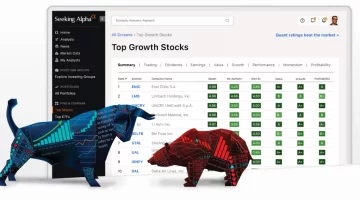Investing overseas – knowing the impact of currencies
Never have we lived in a time so rife with opportunity. The internet has connected us all and made the world a global place. For decades, investors have focused on opportunities domestically. However, in the 21st century, the best ones can often be found abroad.
For evidence of this, look no further than Alibaba. In 1999, Jack Ma set out to create the ultimate B2B marketplace. He succeeded in creating an easy-to-use platform that connected importers with Chinese manufacturers. Today, Alibaba has a valuation of a half-trillion dollars. Don’t you wish you got in on the ground floor of this business?
Nonetheless, overseas investing comes with risk. Dishonest operators, shifting laws, and corrupt governments are just a few that come to mind. However, few consider the impact of currency exchange rates.
It wasn’t until the Brexit vote that many began to take this issue seriously. Within seconds of news anchors calling the 2015 referendum for “Leave,” GBP/USD fell by more than 10%. While this example may be an extreme one, it illustrates the need to understand foreign exchange before investing overseas.
In this article, we’ll show you what you ought to keep in mind.
Obtaining the best rate can maximize the value of your investment
In all forms of investing, maximizing ROI is the name of the game. Most focus on output, for obvious reasons. However, if you can minimize what you pay to acquire an asset, you can scale your return exponentially.
Most investors do this by driving a hard bargain in the boardroom. When conducting international deals, though, it pays dividends to keep a close eye on exchange rates.
Here’s why. If you rush a deal, you might miss a currency movement in your favor. Let’s say you just acquired a widget company in Taiwan. Two days later, their central bank releases a bad news employment report. For a brief moment in time, the value of the USD jumps 1-2%.
If you had a limit order in place, it would have triggered at your desired price. Let’s say you agreed to buy that Taiwanese widget company for 91 million TWD. At current rates, that’s worth about 3 million USD. Had the funds been transferred during the 2% flash crash, though, you would have only paid 2.94 million USD for a savings of 60,000 USD.
To determine the best buying opportunities abroad, however, you need to know where your dollar goes furthest. To find the best foreign exchange rates today, we recommend checking out MoneyTransferComparison.com. Every hour, they offer the most current prices for common currency pairings.
An unexpected drop in currency rates can erode or wipe out profits
Not being vigilant about Forex market movements won’t just cause you to miss opportunities. If you’re not careful, it can tear a chunk of flesh off your bottom line.
Let’s say you’re in the process of investing 10 million USD in a Polish steel mill. You reach an agreement in principle to purchase a 33% share in their operations. After closing the deal in Krakow, you’re tipsy from a few pints too many. Given your state, you decide to set up the transfer tomorrow.
After sleeping for a solid eight hours, you turn over in your hotel bed and flip on CNN International. The effects of the Trump Trade War have begun to take effect at the worst possible time. While you slept, plummeting profits caused USD/EUR to crater 10%. Yesterday, USD/EUR stood at 0.8966. Today, you stare in shock as that number languishes at 0.8069.
To complete the deal, you’d then have to send over 11.2 million USD. How much is 1.2 million USD worth to your business?
The returns of international investing are worth the risks
The scenario mentioned above is one that’s keeping many CFOs up at night lately. Thanks to Trump Administration policies, it now appears a recession, a bad recession, is likely.
So, why risk investing internationally? Because, in the long run, that’s where virtually all significant moneymaking opportunities lie. As lucrative as America’s consumer market is, we’re largely tapped out as a nation. Nearly 80% of us live paycheck-to-paycheck. Just under half of Americans earn less than 30,000 USD per year.
In short, it’s getting tougher to scale a business domestically. Yes, it’s true that most nations lack our collective buying power. However, the theoretical upper limit of the international consumer market is measured in the BILLIONS.
Globalization has lifted much of the developing world out of poverty over the past 20 years. These people, for the first time in their lives, have disposable income. And increasingly, they have payment methods connected to the internet.
In other words, don’t pass up on amazing international deals due to short-term recession fears. Do so, and you’re leaving money on the table. If you fail to pick it up, someone else will.
Your broker’s exchange rate is NOT the REAL exchange rate
So, you’re about to pull the trigger on an international opportunity – great! Hold up for a second, though – is this is the first time you’ve invested abroad? If so, there’s something we need to tell you.
You know how some brokers offer 0% commission? It’s a ruse. They make their money back (and then some) by charging exchange rates that differ significantly from the REAL one. Many brokers have margins as large as 5% versus the interbank rate. The interbank rate is the wholesale rate banks use to trade with each other.
Let’s say you’re about to make an investment of 100,000 EUR in a Berlin tech startup. You just got off the phone with your local broker, who quoted you a USD/EUR rate of 0.8495. Before calling back to confirm the order, take a second to weigh your options online.
International money transfer firms like Currencies Direct offer rates MUCH closer to interbank. By checking with them, you get a rate of 0.8915. Let’s crunch some numbers: through your broker, you’d have to send 117,716 USD. But with Currencies Direct, that amount shrinks to 112,170 USD.
You can do a lot of good with 5,000 USD in an SME. Don’t underestimate the power of saving money through low-cost money transfer providers.
Those who neglect the gyrations of Forex markets do so at their peril
Business has gone international in the 21st century. As such, you can no longer afford to ignore the impact currency markets can have on your investments. By listening to the guidance of experts, you can avoid making critical errors when transferring funds internationally.
More to Read:
Previous Posts:








